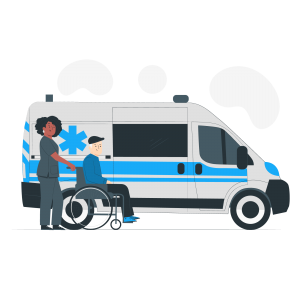The Aftermath of a Bus Crash: Your Legal Roadmap
The aftermath of a bus crash is a scene of chaos. Sirens blare, people shout, and the injured cry out in pain. Amidst the confusion, you might feel overwhelmed, shocked, and unsure of what to do next. The physical and emotional trauma can be immense, and the legal complexities that follow can seem insurmountable. In the wake of such a devastating event, seeking legal guidance is crucial. A personal injury lawyer can be your advocate, helping you understand your rights, navigate the claims process, and fight for the compensation you deserve.
Immediate Steps You Need to Take
Your first priority after a bus accident should always be your health and safety. Seek medical attention immediately, even if you don’t feel seriously injured. Some injuries may not be immediately apparent and require a professional evaluation. While at the scene, if possible, try to document everything. Take photos and videos of the accident site, your injuries, and any damage to the bus or other vehicles involved. If there are witnesses, try to get their contact information and a brief statement. Report the accident to the police and obtain a copy of the accident report, which can be a valuable piece of evidence for your claim.

Understanding the Responsibility
Bus accidents can be incredibly complex when it comes to determining liability. There could be multiple parties involved, each potentially sharing a portion of the blame. The bus driver might have been negligent, the bus company may have failed to maintain the vehicle properly, or another driver might have caused the accident. In some cases, even the manufacturer of the bus or its parts could be held responsible for a defect that contributed to the crash. Unraveling this web of responsibility requires a thorough investigation and a deep understanding of personal injury law. This is where a personal injury lawyer Los Angeles can make a significant difference. They have the experience and resources to investigate the accident, identify all liable parties, and build a strong case on your behalf.
Seeking for Compensation Options
If you’ve been injured in a bus accident that wasn’t your fault, you have the right to seek compensation for your losses. This compensation, often referred to as damages, can cover a wide range of expenses and impacts. Economic damages include tangible losses like medical bills, lost wages, property damage, and rehabilitation costs. Non-economic damages cover intangible losses like pain and suffering, emotional distress, loss of enjoyment of life, and disfigurement.
A bus accident lawyer Los Angeles can help you understand the full extent of your damages and fight to get you the maximum compensation you deserve. They will meticulously document your injuries and losses, gather medical records and bills, and calculate the long-term impact of the accident on your life and earning potential. Insurance companies often try to minimize payouts, but a skilled attorney will negotiate aggressively on your behalf to ensure a fair settlement.
Filing a Claim and Negotiating a Settlement
The legal process following a bus accident can be daunting, but it’s important to understand the basic steps involved. First, your lawyer will file a personal injury claim with the at-fault party’s insurance company. This claim outlines the details of the accident, your injuries, and the compensation you are seeking. The insurance company will then investigate the claim and may make a settlement offer. It’s crucial to have a motorcycle accident lawyer Los Angeles review any settlement offer to ensure it’s fair and covers all your losses.
If the insurance company’s offer is insufficient, your attorney may negotiate for a higher amount. This process can involve back-and-forth communication, providing additional evidence, and potentially even mediation. If a fair settlement cannot be reached, your attorney may recommend filing a lawsuit and taking the case to trial.
Preparing Before Going to Trial
While many bus accident cases are settled out of court, some may require litigation. If the insurance company refuses to offer a fair settlement or denies liability altogether, your attorney may recommend filing a lawsuit. This is a significant step, but it can be necessary to ensure you receive the full compensation you deserve.
Preparing for trial involves gathering and organizing all relevant evidence, including medical records, accident reports, witness statements, and expert testimony. Your lawyer will develop a strong legal strategy, build a compelling case demonstrating the other party’s negligence, and advocate for your rights in court. Going to trial can be a lengthy and stressful process, but a skilled attorney will guide you through every step and fight tirelessly on your behalf.
Remember, the information presented here is a general overview of the legal roadmap after a bus crash. Every accident is unique, and the specific legal strategies and outcomes can vary depending on the circumstances. It’s crucial to consult with a qualified attorney to discuss your individual case and get personalized advice.
Conclusion
The aftermath of a bus crash is a challenging journey, both physically and emotionally. It’s important to focus on your recovery and well-being. Follow your doctor’s orders, attend all medical appointments, and participate in any recommended therapies. Seek emotional support from friends, family, or a therapist if needed. Remember, healing takes time, and it’s okay to not be okay.
While the legal process unfolds, try to focus on rebuilding your life. This might involve returning to work, resuming your daily activities, and finding new ways to enjoy life. While the scars of the accident may linger, it’s important to look towards the future and embrace the possibilities ahead.
As you move forward, remember that you are not alone. Many resources are available to help you through this difficult time. Support groups, counseling services, and legal aid organizations can offer valuable assistance and guidance. The road to recovery may be long and winding, but with the right support and a strong legal advocate by your side, you can emerge from this experience stronger and more resilient.